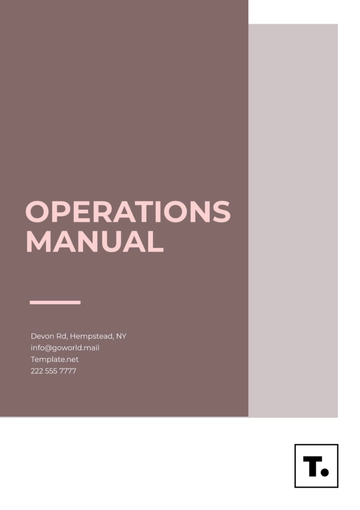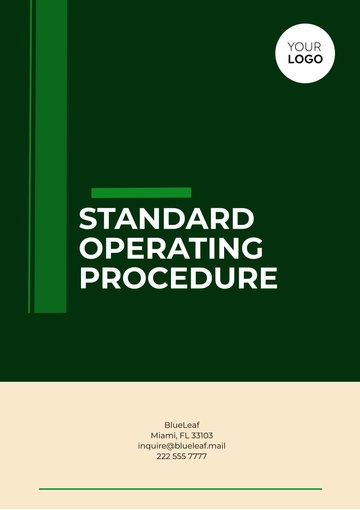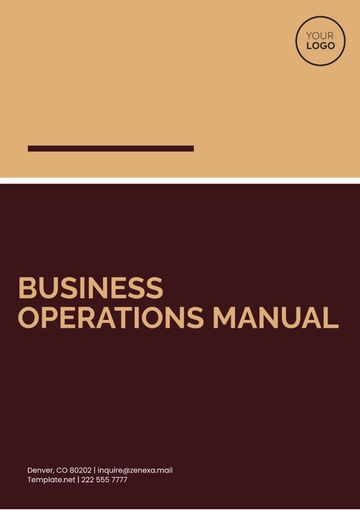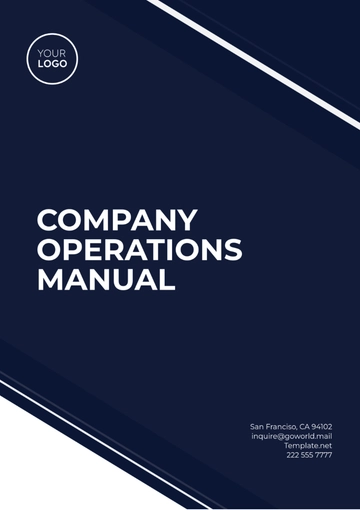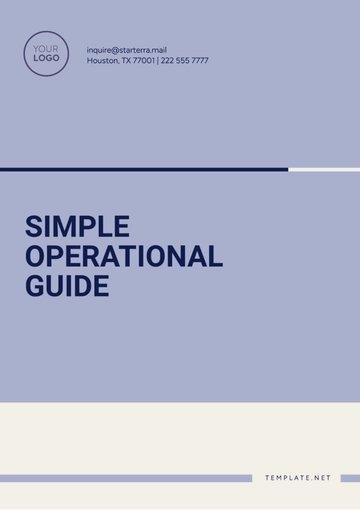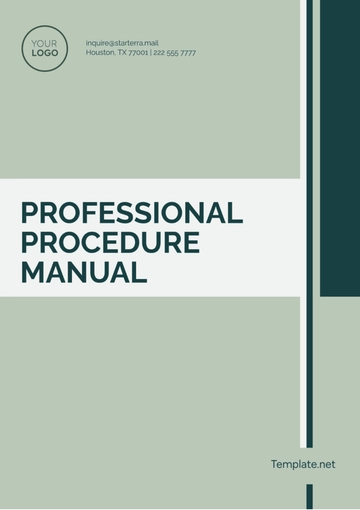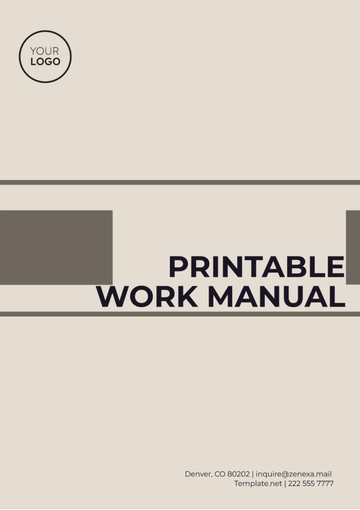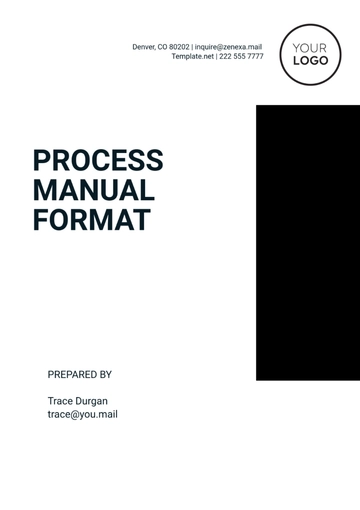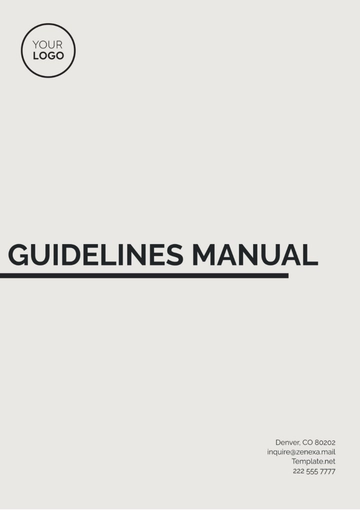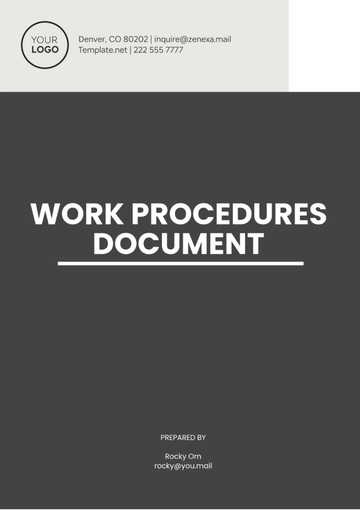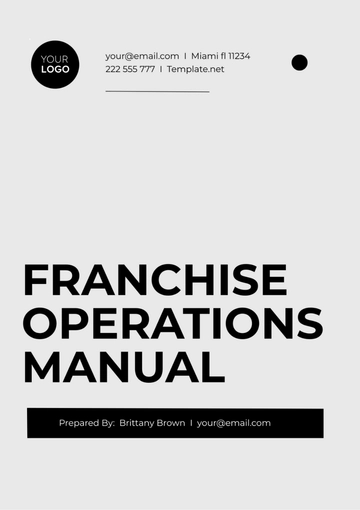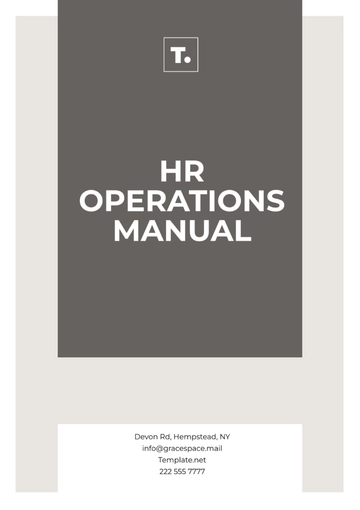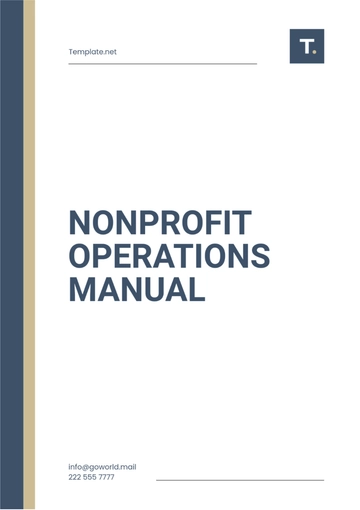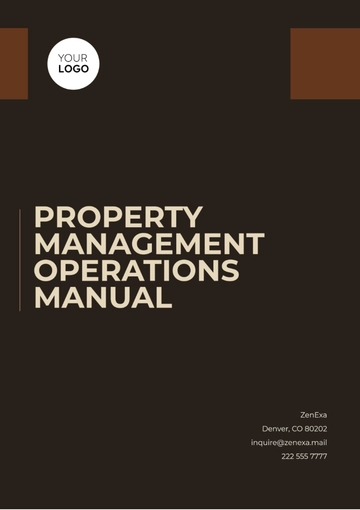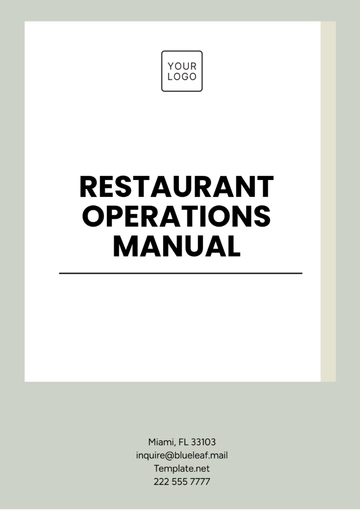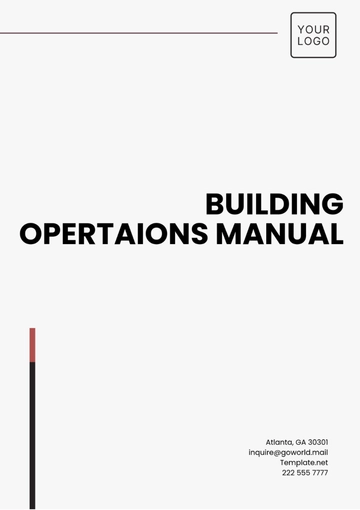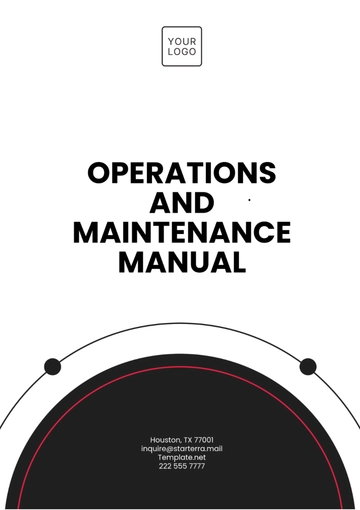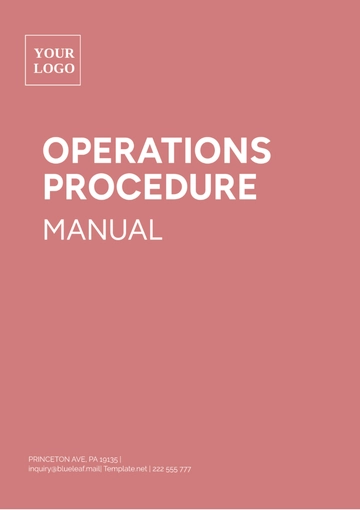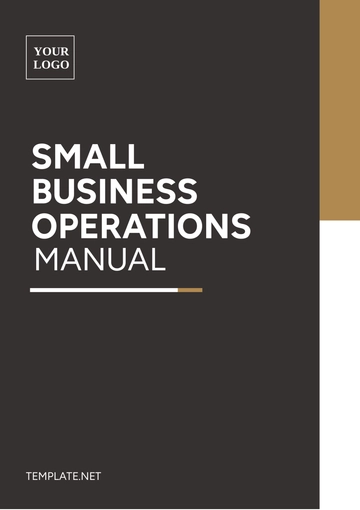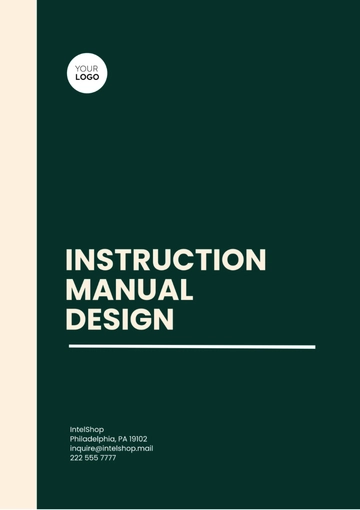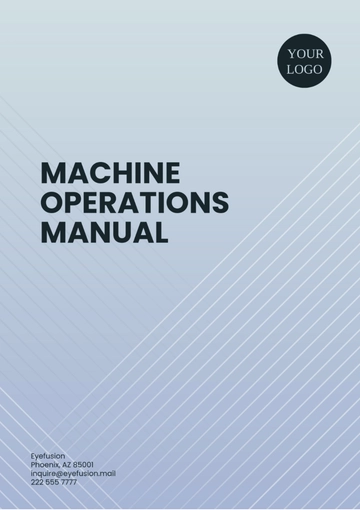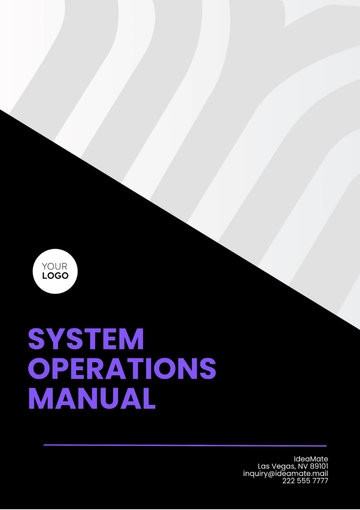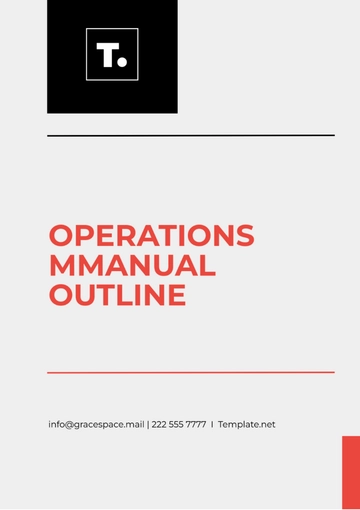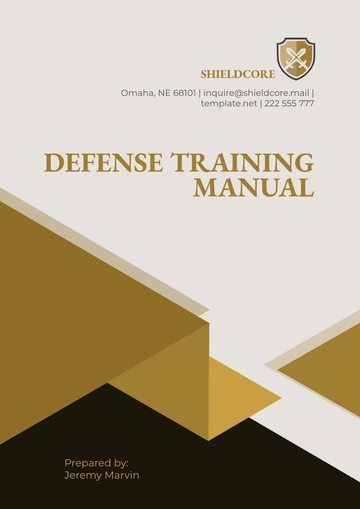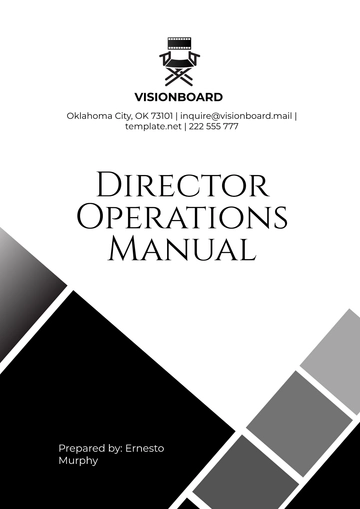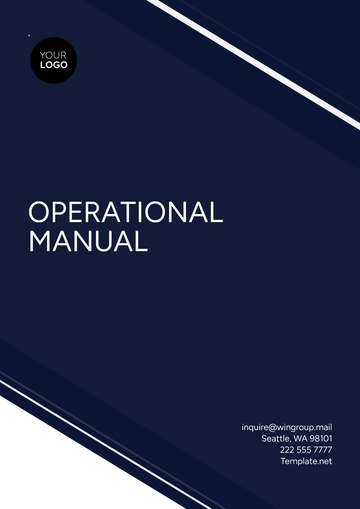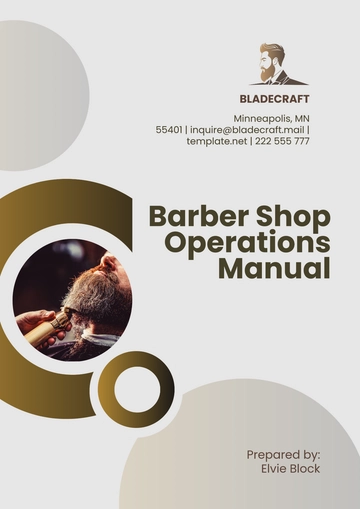Free Marketing Event Operation Manual
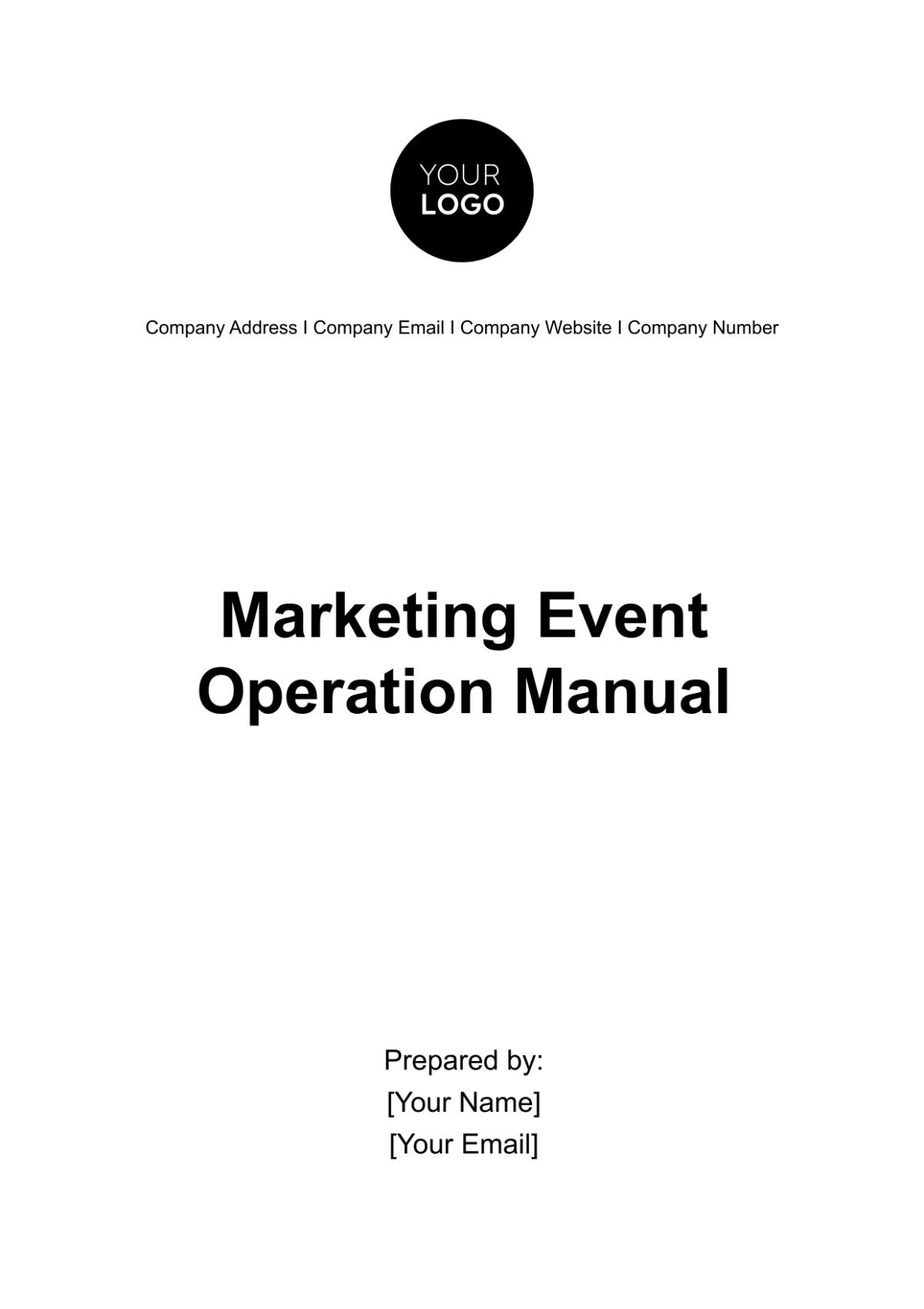
I. Introduction
Welcome to [Your Company Name]'s Event Operation Manual. This guide is designed to assist you in successfully planning, executing, and evaluating marketing events. Within the world of marketing, events serve as one of the most potent tools to engage with audiences, partners, and stakeholders. This manual ensures that each event you organize under the company's banner meets the highest standards of quality, efficiency, and effectiveness.
A. The Importance of Events in Marketing
In the dynamic world of marketing, events play a pivotal role. They not only create brand awareness and promote products or services, but they also establish genuine connections between a company and its audience. Here are some key reasons why events are invaluable:
Engagement: Unlike digital promotions, events offer real-time engagement. Attendees can ask questions, experience products, and interact with the brand directly.
Networking: They provide a platform for businesses to meet potential clients, partners, or investors. The relationships forged at events can lead to fruitful collaborations in the future.
Direct Feedback: Events allow brands to receive immediate feedback on their offerings. This direct line of communication helps in tweaking products or strategies.
Brand Visibility: Hosting or participating in an event elevates a brand's visibility. It sets a company apart from its competitors and establishes it as an industry leader.
As you navigate through this manual, keep in mind the potential impact of every event you organize. The strategies and guidelines herein are tailored to ensure our company continues to host events that resonate, inspire, and drive business growth.
II. Event Planning
The success of any event largely hinges on meticulous planning and execution. Event planning involves a series of interconnected tasks that culminate in the smooth operation of the event. In this section, we will delve deeper into the crucial elements of event planning for [Your Company Name].
A. Timeline and Deadlines
Establishing a clear timeline ensures that all tasks are completed promptly and nothing is overlooked. It provides a roadmap for the team to follow and facilitates effective time management.
Event Planning Timeline for Annual Gala 2051:
Task | Start Date | Deadline |
Venue selection | Jan 1, 2051 | Jan 15, 2051 |
Secure sponsorships | Jan 10, 2051 | Feb 20, 2051 |
Open ticket sales | Feb 25, 2051 | Jul 25, 2051 |
Finalize catering | Mar 1, 2051 | Mar 10, 2051 |
Complete promotional materials design | Mar 15, 2051 | Apr 5, 2051 |
Distribute promotional materials | Apr 7, 2051 | Jul 20, 2051 |
B. Key Contacts
Every successful event is backed by a strong, coordinated team. Having an easily accessible list of key contacts ensures smooth communication and decision-making.
C. Theme and Concept
Before delving into the details, it's essential to conceptualize the event's theme. A compelling theme can unify all elements of the event and enhance attendee engagement.
Brainstorming: Gather the team and brainstorm potential themes. Consider the target audience, company goals, and current industry trends.
Consistency: Ensure that the chosen theme is consistent across all promotional materials, decor, and activities.
Relevance: Make sure the theme resonates with the target audience and fits the company's brand image.
D. Venue Considerations
Size & Capacity: Choose a venue that doesn't just fit everyone, but also provides space for movement, interaction, and relaxation. Overcrowding can diminish an attendee's experience, while too much empty space can make the event feel undersubscribed.
Location: The venue should be in a strategic location, easily accessible by public and private transportation. Ensure there's adequate parking, and consider proximity to hotels or public transport hubs, especially if expecting out-of-town attendees.
Facilities: Beyond the basics, assess the technological infrastructure of the venue. Is the AV equipment state-of-the-art? Are there enough restrooms to avoid long queues? Are the catering areas sufficiently equipped and located in places that won't disrupt the flow of the event? And are there breakout or private rooms for VIP attendees or side meetings?
Ambiance: The venue's decor and design should resonate with the event's theme and create the right mood. Lighting, acoustics, and even scent can dramatically influence the attendees' perception and experience.
E. Risk Management
Contingency Planning: It's not enough to have a Plan B; sometimes, even a Plan C is required. Whether it's an alternative venue in case of unforeseen issues, backup equipment, or stand-in performers and speakers, proactive planning can save the day.
Insurance: Beyond the typical event insurance, explore policies that cover specific risks associated with your event's nature. This might include weather-related cancellations for outdoor events, or non-appearance insurance for events hinging on key personalities.
Safety Protocols: An event's success isn't just measured by attendee satisfaction but also by their safety. Ensure that the venue has clear fire exits, accessibility options for differently-abled attendees, and a medical response team or first aid provisions on standby.
III. Budgeting and Finance
Effectively managing the finances of an event is both an art and a science. A well-constructed budget not only ensures the financial viability of the event but also maximizes the return on investment (ROI). Here, we delve into the intricacies of event budgeting and financial management for [Your Company Name].
A. Budget Creation
Comprehensive: Account for every possible expense, no matter how minor it seems. This includes licensing fees, taxes, and even potential overtime costs for staff.
Flexible: While it's vital to adhere to the budget, building in a contingency fund (typically 5-10% of the total budget) is crucial for unexpected costs.
Regularly Updated: As the event planning progresses, expenses can fluctuate. Regularly review and adjust the budget to reflect actual costs.
B. Expense Tracking
Use Digital Tools: There are various budgeting and finance software options tailored for event management. These tools help in real-time tracking of expenses.
Maintain Receipts and Invoices: Implement a rigorous filing system, either digitally using cloud storage solutions or through traditional means, ensuring that every receipt, invoice, and financial statement is categorized and easily accessible.
C. Revenue Streams
Ticket Sales: Consider Early bird specials, VIP packages, group rates, or loyalty discounts that can cater to different segments of your target audience, potentially increasing ticket sales.
Sponsorships and Partnerships: Cultivate relationships with relevant brands and organizations. These partnerships can provide financial support, in-kind contributions, or even co-marketing opportunities, enhancing the event's visibility and reach.
Merchandising: Capitalize on the event's brand by selling themed merchandise. From apparel to digital downloads, merchandise can serve as both a revenue stream and a marketing tool, prolonging the event's visibility.
D. Cost Savings
Negotiate with Vendors: Don't accept the first quote. Use any existing relationships, potential for future business, or competitive quotes to negotiate better deals with vendors.
Volunteer Staff: Instead of hiring for all roles, some positions might be filled by volunteers. They can bring passion and dedication, especially if they resonate with the event's theme. In return, they gain experience, networking opportunities, or special access perks.
In-kind Sponsorships: Some companies might prefer offering their products or services instead of monetary sponsorship. Whether it's tech equipment, catering, or décor, these contributions can significantly reduce out-of-pocket expenses.
E. Financial Analysis Post-Event
Audit: A meticulous audit of the event's finances helps identify areas of efficiency and potential overspending. This data-driven approach provides valuable insights for more accurate budgeting in future events.
ROI Calculation: Beyond just calculating the ROI, analyze the factors that influenced it. Understanding the 'why' behind the numbers can inform future event strategies. ROI is calculated as (Net Profit / Cost of the Event) x 100.
Stakeholder Reporting: Keeping stakeholders in the loop is vital. Present a comprehensive financial report, complete with visual aids like charts or graphs, to sponsors, investors, or company leadership, showcasing the event's financial health and success.
IV. Marketing and Promotion
Effective marketing and promotion strategies not only increase ticket sales but also set the tone for the event. Here's an enhanced guide to ensure [Your Company Name]'s events captivate the target audience.
A. Digital Marketing Strategy
Social Media Campaigns: Utilize platforms tailored to your audience. Use captivating visuals, behind-the-scenes content, and interactive elements like polls or Q&A sessions. Consider influencer collaborations to tap into their follower base.
Email Marketing: Segment your email list to send personalized messages. Teasers, countdowns, and exclusive offers can entice potential attendees.
Search Engine Optimization (SEO) and Pay-Per-Click (PPC): Optimize your event website or landing page for search engines. Concurrently, invest in PPC campaigns to boost visibility.
Virtual Event Teasers: With the rise of hybrid events, offering virtual attendees a sneak peek or exclusive online content can generate buzz.
B. Traditional Marketing Techniques
Print Media: Design eye-catching flyers, brochures, and posters. Distribution in strategic locations can attract local attendees.
Radio and TV Spots: Time your adverts during peak listening or viewing hours, ensuring your message reaches the maximum audience.
Direct Mail: Physical invitations or promotional materials can offer a personal touch, especially for VIPs or key stakeholders.
C. Partnerships and Collaborations
Brand Collaborations: Partner with complementary brands for co-marketing opportunities. Their endorsement can lend credibility and expand your audience.
Media Partnerships: Collaborate with media outlets for event coverage. Pre-event interviews, feature articles, or post-event recaps can boost visibility.
D. Engagement and Feedback
Interactive Content: Host webinars, Q&A sessions, or live streams in the run-up to the event. Engage with potential attendees and address any queries.
Feedback Loops: Use surveys or social media polls to understand what your audience expects. This feedback can help fine-tune your marketing messages.
V. On-site Management
Managing the on-site dynamics of an event is where all the prior planning manifests. This is the frontline, where attendees experience the event firsthand, and the smallest details can make the biggest difference. Ensuring a seamless on-site experience for attendees, partners, and staff is paramount for [Your Company Name]'s reputation and future success.
A. Registration
Efficient Staffing: Allocate enough trained personnel to handle peak check-in times. This ensures smooth and swift registration, reducing wait times.
Tech Integration: Use digital check-in systems or apps to streamline the process. Consider QR code scanning or RFID tags for faster entry.
Information Hub: Apart from registration, the desk should serve as an information point where attendees can ask about schedules, locations, facilities, or any other event-related queries.
B. Security Measures
Trained Personnel: Ensure security staff are well-trained to handle various situations, from crowd control to emergency evacuations.
Access Control: Use wristbands, badges, or electronic access cards to delineate access to different event areas and ensure only authorized individuals enter.
Emergency Protocols: Establish and communicate emergency evacuation plans. Ensure staff and security are briefed on the procedures.
C. Technical Support and Infrastructure
AV Team Readiness: A dedicated team should be on-site to manage sound, lighting, and video. They should be prepared to handle any unexpected issues promptly.
Rehearsals: Conduct technical run-throughs before the event starts. This helps in identifying potential issues and ensuring all equipment functions optimally.
Backup Equipment: Have backup microphones, projectors, and other essential equipment on hand. In the event of a malfunction, swift replacements minimize disruptions.
VI. Conclusion
In the dynamic realm of event operations, meticulous planning and execution are paramount. This manual serves as a comprehensive guide, encapsulating every facet of event management for [Your Company Name]. From initial planning to post-event analysis, the strategies and guidelines outlined herein are tailored to ensure our events resonate with attendees and achieve their intended objectives.
As we navigate the evolving landscape of events, let this manual be a beacon, guiding us to create experiences that are both memorable and impactful. Remember, every event is not just a gathering, but an opportunity—to connect, engage, and leave an indelible mark. Here's to creating many such remarkable moments together.
- 100% Customizable, free editor
- Access 1 Million+ Templates, photo’s & graphics
- Download or share as a template
- Click and replace photos, graphics, text, backgrounds
- Resize, crop, AI write & more
- Access advanced editor
Get ready to streamline your marketing events with Template.net's Marketing Event Operation Manual Template. This fully editable and customizable document is designed to meet your specific needs. Editable in our Ai Editor Tool, it offers seamless customization, ensuring your event operations are efficient and organized. Simplify your planning process today!
